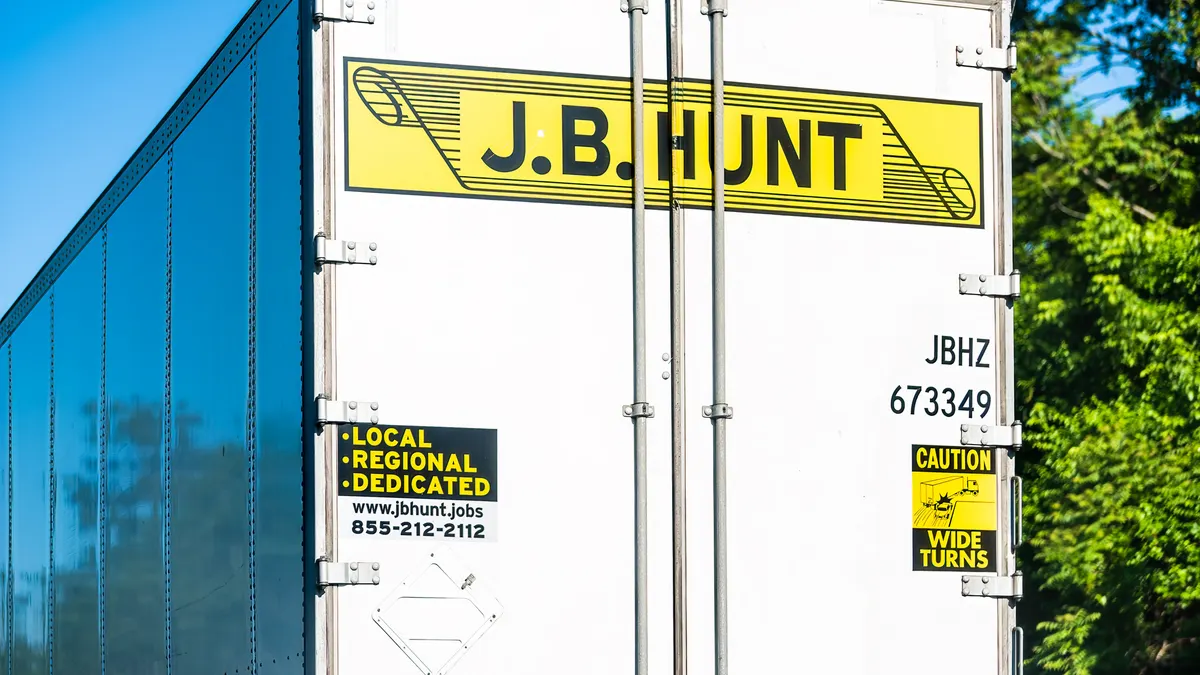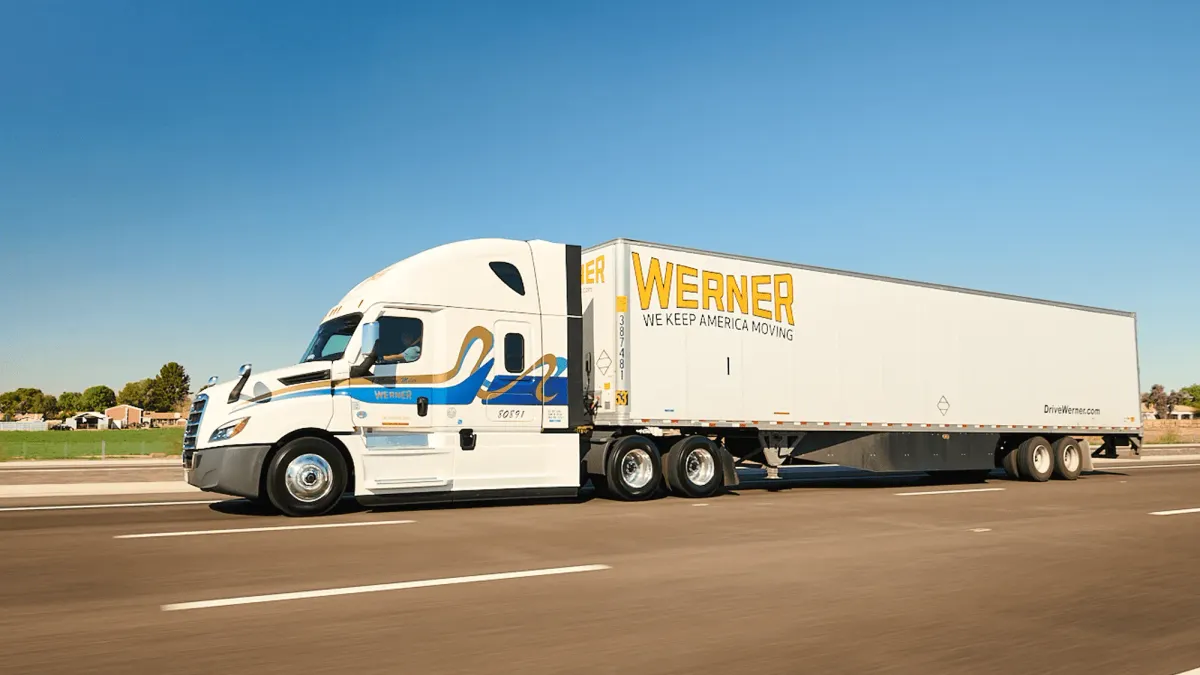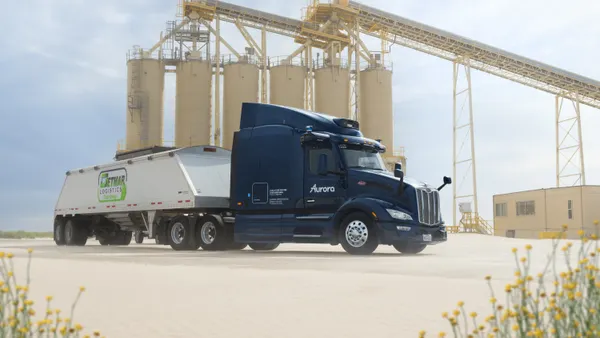Dive Brief:
- "Wicked tight" transport capacity amplifies the challenges of coronavirus vaccine distribution, Andrew Boyle, co-president of Massachusetts-based Boyle Transportation, said during a Nevada Transportation Association meeting Friday.
- Boyle pointed to factors contributing to a tight market, including a low inventory-to-sales ratio (which calls for more just-in-time transport), a slowed pipeline of new truckers and drivers opting to stay home. "We're like a factory that's running at 80% of capacity ... yet we have 150% demand. That's pretty tough," Boyle said.
- Boyle called on transport providers to put competitive interests aside and work together on vaccine distribution. "When it comes to the virus, there is only one competitor. And that's not a motor carrier," he said.
Dive Insight:
The COVID-19 vaccine's timeline is highly condensed, which means the timeline to develop supply chain and distribution capacity is also tightened, Boyle said.
Typical vaccine development takes eight to 12 years, with clinical trials occurring first, followed by supply chain establishment, and finally a large-scale manufacturing and distribution ramp up. But with the coronavirus vaccine, those aspects have occurred simultaneously, as opposed to sequentially, Boyle explained.
"This is highly unusual to compress all these processes into one year," he said. "And, quite frankly, I'm very, very concerned. Because those are not trivial exercises, and we're going into a very tight market."
Transporting vaccines and other pharmaceutical products requires qualifications and certifications beyond reefer operations.
"You typically can't shift from doing chicken nuggets or ice cream to vaccines," Boyle said.
Boyle Transportation spent eight to 10 years developing expertise for pharmaceutical logistics. The fleet thermally maps all of its trailers and monitors temperature in real time, 24/7, according to its website.
Several large logistics companies have been building up capacity and capabilities in the cold chain, and Chris MacDonald, senior vice president and general manager of the Americas for Orbcomm, anticipates more fleets will invest in technology and work toward pharmaceutical compliance given increased demand for vaccine transport.
FedEx's Express segment will use refrigerated trucks and trailers as part of global vaccine distribution, and it's preparing to add 25 cold storage locations next year.
Pfizer told sister publication Supply Chain Dive that it will partner with DHL, FedEx and UPS and use road and air transportation to distribute its vaccine, estimating 12 trucks daily leaving its facility in Kalamazoo, Michigan.
Execution of vaccine distribution will fall upon the shoulders of logistics workers, such as loading dock operators, truck drivers, air cargo handlers and package sorters, Boyle said. "They're proud, and they're ready," he said.
The American Trucking Associations advocated for truck drivers to receive vaccine priority to minimize distribution delays. The Centers for Disease Control and Prevention has recommended transport workers for "Phase 1b" of inoculation, meaning second in line after healthcare workers to receive the COVID-19 vaccine.










